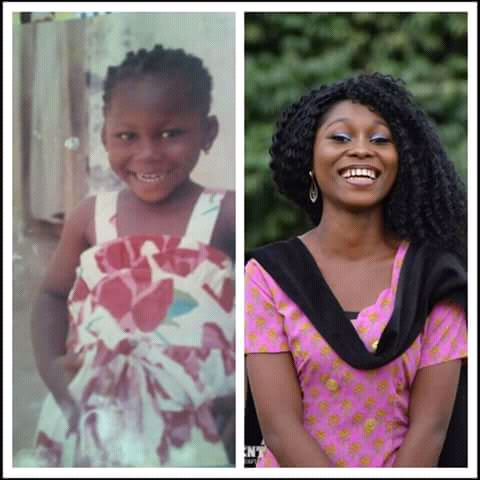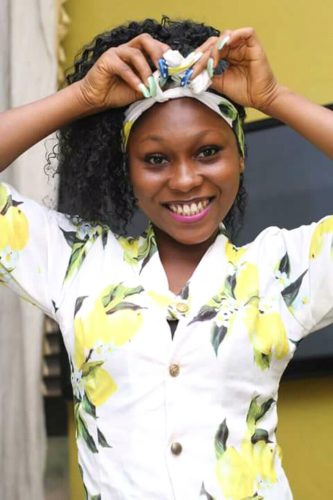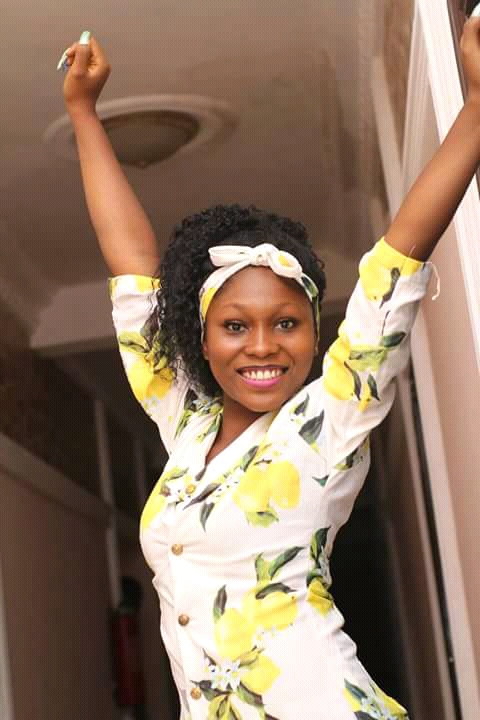 Nineteen-year-old Olive Nwaigbo is not the average teenager. The young biochemistry student at the University of Science and Technology in Nigeria, is on a mission to inspire young women to value themselves, believe in themselves, and to own and be in control of their sexuality.
Nineteen-year-old Olive Nwaigbo is not the average teenager. The young biochemistry student at the University of Science and Technology in Nigeria, is on a mission to inspire young women to value themselves, believe in themselves, and to own and be in control of their sexuality.
Through her foundation, the Olive Foundation, which is taking root, Nwaigbo reaches out to young people and helps organize events on entrepreneurship, and encourages her peers to express their ideas regardless of how silly they think they are.
“My mom’s story drives me,” Nwaigbo told The Weight She Carries. “She’s the reason why I want to be successful, why I want to go the extra mile to reach out to people.”
She is wise beyond her years, a trait she attributes to her life experiences.
Raised in a single-parent home, Nwaigbo is the youngest of two children. Her father abandoned the family when Nwaigbo was just a few months old.
“He asked my mother to move from our home in Kano to Abuja (almost four hours away) and said he would join us there in two months. He didn’t come for two years,” Nwaigbo said. “Then when he did came, he stayed with us for less than a year and then left for good.”
The next time she saw her father, Nwaigbo was 11.
“I don’t know my father. I can recognize him in public, but I don’t have a relationship with him. I don’t even know his date of birth or his age. I don’t know anything about him.”
– Olive Nwaigbo
The little she remembers about her father was not positive. On one occasion when Ngaigbo was in preschool, she saw her father hit her mother.
“Even now, I keep remembering that picture…him hitting my mom,” she said.
When he did leave, all he left was 50 Naira (less than USD$1) for the family. Nwaibo’s mother, who was unemployed at the time, was forced to find a way to provide for the family.
Growing up without a father had a tremendous impact on Nwaigbo.
“I was so depressed, I felt unloved. No matter how much my mother tried to make me feel that she loved me, I didn’t feel loved. I felt like if my own father could leave me, then everyone else has the right to give up on me. Because the one person who should have stayed, didn’t stay.”
– Olive Nwaigbo
It was difficult to hear friends talk about their fathers, and anytime someone brought up the subject, Ngwaibo would shut down completely and refuse to discuss the topic further.
She built walls to protect herself from the pain of rejection, which cost her many friendships.
“I had a hard time keeping friends, but I didn’t feel bad when I lost one. I would tell them that my father left me, so they are free to go as well,” she said.
With a troubled social life, Nwaigbo, who is an extrovert by nature, slipped into depression.
“It was very tough for me, but I began to read a lot of books and they helped me cope with life,” she said.
Working in her favour was her mother’s strong faith in God, which she passed down to Nwaigbo. During her darkest days, Nwaigbo leaned on God and her mother for strength.
“I talk to God like he is my agemate. If you were to hear me praying you would laugh because I say to him, ‘Hey guy, what’s up?’ I talk to him the way I would talk to a friend,” she said.
Children from single-parent homes have a greater risk of incarceration, physical and emotional problems, drug and alcohol abuse and suicide.
As a result of having an absentee father, Nwaigbo started dating at a young age, although none of those relationships were serious, she said.
 “I was yearning for love from a man. My mother is a woman, and no matter how hard she tried, she could not fill that void because she is a woman,” she said.
“I was yearning for love from a man. My mother is a woman, and no matter how hard she tried, she could not fill that void because she is a woman,” she said.
Her mother, who now worked as a nurse, continued to struggle to provide for Nwaigbo and her older brother. And when time came for Nwaigbo to begin high school, her tuition cost more than her mother’s salary.
“It was really tough for my mother. I would ask her to buy things for me but she wouldn’t be able to give them it to me, and I would see her cry almost every night,” she said.
Things got so tough that Nwaigbo’s family had to live in a hospital for six years.
“I couldn’t tell my friends where I lived because I was embarrassed. I couldn’t invite any of them to my home,” she said.
Miraculously, Nwaigbo’s tuition was paid each semester. Her mother was able to either borrow money from someone, or relatives would chip in and send her money.
Meanwhile, Nwaigbo’s relationships continued to suffer and she developed a negative attitude towards men – doing everything in her power to never let a man tell her what to do.
“I became very rude. I wouldn’t take any advice from a man. I didn’t think any man deserved to tell me anything, and I wouldn’t tolerate it. I have an older brother and I become violent and would fight him, and any man who challenged me. I was so bad,” she said.
“Now I realize that there are better ways to deal with men. Violence is not the answer. There has never been a time when violence won over peace.”
– Olive Nwaigbo
The decision to open up about her childhood was a recent one that was necessary.
“I can’t wait until I’m successful to share my story. I’ve come a long way. No matter how little I feel I have accomplished, God has blessed me, and my story will bless someone else,” she said.
Having found her voice, Nwaigbo feels compelled to help other young people do the same.

In an effort to reach young people, Nwaigbo has co-hosted Hult Prize events.
Hult Prize hosts annual, year-long competitions that encourage young people to come up with ideas that solve social issues around topics like food security, water access, energy, and education.
Blessed with a tenacious drive to succeed, Nwaigbo is determined to overcome any obstacle that stands in her way.
“I’m a very optimistic person. I don’t believe in negativity. Even when I experience something bad and I don’t know what is going to happen, I always have hope,” she said.
Vimbai E. is a content marketer, ghostwriter, and the founder of The Weight She Carries. With hundreds of articles and stories publishing online, in print and for broadcast, her love of language and storytelling shines through every piece of writing that bears her name.
